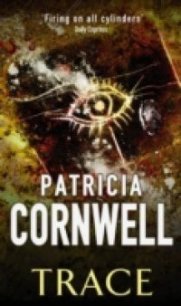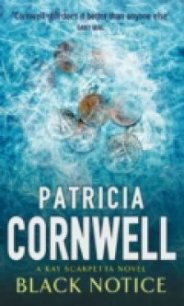All That Remains - Cornwell Patricia (читать хорошую книгу полностью TXT) 📗
Wesley nodded. "He was in the area, then. He's been in the area during all of these murders. He's been working in his bookstore since it opened, except for a period of about five months back, uh, seven years ago. The store was closed during that time. We don't know why or know where Spurrier was."
"He runs his bookstore by himself?"
Marino asked.
"It's a small operation. No other employees. The store is closed on Mondays. It's been noted that when there isn't much business he just sits behind the counter and reads, and if he leaves the store before closing time he either closes early or puts a sign on the door that says he'll be back at such and such an hour. He also has an answering machine. If you're looking for a certain book or want him to search for something out of print, you can leave your request on his machine."
"It's interesting that someone so antisocial would open a business that requires him to have contact with customers, even if the contact is rather limited," I said.
"It's actually very appropriate, " Wesley said. "The bookstore would serve as a perfect lair for a voyeur, someone intensely interested in observing people without having to personally interact with them. It has been noted that William and Mary students frequent his store, primarily because Spurrier carries unusual, out-of-print books in addition to popular fiction and nonfiction. He also carries a wide selection of spy novels and military magazines, which attract business from the nearby military bases. If he's the killer, then watching young, attractive couples and military personnel who come into his store would fascinate him in a voyeuristic fashion and at the same time stir up feelings of inadequacy, frustration, rage. He would hate what he envies, envy what he hates."
"I wonder if he suffered ridicule during his time in the navy," I conjectured.
"Based on what I've been told, he did, at least to a degree. Spurrier's peers considered him a wimp, a loser, while his superiors found him arrogant and aloof, even though he was never a disciplinary problem. Spurrier had no success with women and kept to himself, partly by choice and because others did not find his personality particularly attractive."
"Maybe being in the navy was the closest he ever got to being a real man," Marino said, "being what he wanted to be. His father dies and Spurrier has to take care of his sick mother. In his mind, he gets screwed."
"That's quite possible," Wesley agreed. "In any event, the killer we're dealing with would believe that his troubles are the fault of others. He would take no responsibility. He would feel his life was controlled by others, and therefore, controlling others and his environment became an obsession for him."
"Sounds like he's paying back the world," Marino said.
"The killer is showing he has power," Wesley said. "If the military aspects enter into his fantasies, and I think they do, then he believes he's the ultimate soldier. He kills without being caught. He outsmarts the enemy, plays games with them, and wins. It may be possible that he has deliberately set things up in such a way as to make those investigating the murders suspect that the perpetrator is a professional soldier, even someone from Camp Peary."
"His own disinformation campaign," I considered.
"He can't destroy the military," Wesley added, "but he could try to tarnish the image, degrade and defame it."
"Yeah, and all the while he's laughing up his sleeve," Marino said.
"I think the main point is that the killer's activities are the product of violent, sexualized fantasies that existed early on in the context of his social isolation. He believes he lives in an unjust world, and fantasy provides an important escape. In his fantasies he can express his emotions and control other human beings, he can be and get anything he wants. He can control life and death. He has the power to decide whether to injure or "Too bad Spurrier don't just fantasize about whacking couples," Marino said. "Then the three of us wouldn't have to be sitting here having this conversation."
"I'm afraid it doesn't work that way," Wesley said. "If violent, aggressive behavior dominates your thinking, your imagination, you're going to start acting out in ways that move you closer to the actual expression of these emotions. Violence fuels more violent thoughts, and more violent thoughts fuel more violence. After a while, violence and killing are a natural part of your adult life, and you see nothing wrong with it. I've had serial murderers tell me emphatically that when they killed, they were just doing what everybody else thinks of doing."
"Evil to him who evil thinks," I said.
It was then that I offered my theory about Deborah Harvey's purse.
"I think it's possible the killer knew who Deborah was," I said. "Perhaps not when the couple was first abducted, but he may have known by the time he killed them."
"Please explain," Wesley said, studying me with interest.
"Have either of you seen the fingerprints report?"
"Yeah, I've seen it," Marino replied.
"As you know, when Vander examined Deborah's purse he found partials, smudges on her credit cards, but nothing on her driver's license."
"So?"
Marino looked perplexed.
"The contents of her purse were well preserved because the nylon purse was waterproof. And the credit cards and her driver's license were inside plastic windows and zipped inside a compartment, thus protected from the elements and the body fluids of decomposition. Had Vander not picked up anything that would be one thing. But I find it interesting that he picked up something on the credit cards but not on her driver's license, when we know that Deborah got out her license when she went inside the Seven-Eleven and tried to buy beer. So she handled the license, and Ellen Jordan, the clerk, also handled it. What I'm wondering is if the killer didn't touch Deborah's driver's license, too, and then wipe it clean afterward."
"Why would he do that?"
Marino asked.
"Maybe when he was inside the car with the couple, had the gun out and was abducting them, Deborah told him who she was," I answered.
"Interesting," Wesley said.
"Deborah may have been a modest young woman, but she was well aware of her family's prominence, of her mother's power," I went on. "She may have informed the killer in hopes that he would change his mind, think that in harming them there would be hell to pay. This may have startled the killer considerably, and he may have demanded proof of her identity, at which point he may have gotten hold of her purse to see the name on her driver's license."
"Then how did the purse end up out in the woods, and why did he leave the jack of hearts in it?"
Marino asked.
"Maybe to buy himself a little time," I said. "He would have known that the Jeep would be found quickly, and if he realized who Deborah was, then he was also going to know that half the law enforcement world was going to be out looking for them. Maybe he decided to play it safe by not having the jack of hearts found immediately, so he left it with the bodies instead of inside the Jeep. By placing the card inside the purse and putting the purse under Deborah's body, he ensured that the card would be found, but probably not for a long time. He changes the rules a little but still wins the game."
"Not half bad. What do you think?"
Marino looked at Wesley.
"I think we may never know exactly what happened," he said. "But it wouldn't surprise me if Deborah did exactly what Kay has proposed. One thing is certain - no matter what Deborah may have said or threatened, it would have been too risky for the killer to free her and Fred because they probably would have been able to identify him. So he went through with the murders, but the unforeseen turn of events could have thrown him off. Yes," he said to me. "This could have caused him to alter his ritual. It may also be that leaving the card in Deborah's purse was his way of showing contempt toward her and who she was."


